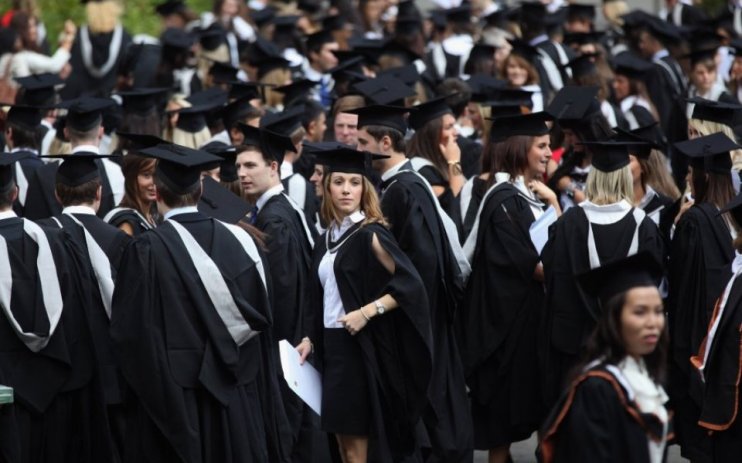Student loans perpetuate a broken financial system, it’s time for them to go

Whitehall is preparing for a major tussle over student loans, with the Treasury increasingly concerned about the growing burden and its impact on the nation’s finances.
The principle of a student loan seems simple: take one out to cover the cost of your time at university and pay it back when you start to earn a high salary.
In practice, it rarely works as easily as that. Until you earn £27,205 a year, nothing needs to be repaid. Many graduates, however, are not making this amount and many never will. On the government’s own estimates, the Treasury will have to write off 53 per cent of the value of student loans issued last year. Separate figures from the Institute of Fiscal Studies suggest only one in six students will fully repay their debts.
One of the key arguments driving the expansion of universities, under John Major and then Tony Blair, was based on the idea of a “graduate premium”. A university level education would lead to a better job with increased lifetime earnings and was therefore worthy of public investment.
At the time, a minority of economists warned of the obvious outcome: a big increase in the supply of any product – in this case, graduates – would eventually reduce its price.
This has now come to fruition, triggering a cascade of fears within Whitehall. The total amount of student debt outstanding is now almost £140 billion. Around a half of this will never be repaid because many graduates will not earn enough. Their price – their salary – has been reduced.
Going back fifty years, it was a different world: barely 10 per cent of each age cohort went to university. Far from having to take out loans, students were paid grants by the state. A small minority needed a high level of training to fill the elite jobs which were available, justifying the need for the public expenditure.
The individual students benefited and in general they did go on to earn relatively large amounts of money. In effect, they repaid the investment made in them by paying higher rates of tax.
For many students, higher education has changed fundamentally into personal consumption.
The taxpayer gives them money to enable them to spend three years following undemanding courses and generally – Covid excepted – having a good time. And the money is never repaid.
Universities make a song and dance about equality. But the current set up is profoundly unequal.
In terms of the distribution of intellectual ability, the bottom fifty per cent still do not get to go to university. The top fifty per cent do, but this is split into two bands.
For approximately the top 25 per cent, the principle of higher education being a public investment good still holds. It is those in the 50 to 75 per cent ability band who get subsidised by the taxpayer, without the public finances ever reaping the rewards. Some of these taxes are in fact being paid by the bottom 50 per cent, who never had the opportunity.
The latest thinking within Whitehall is requiring students to obtain a particular set of A level grades to qualify for a loan. But this runs the risk of being undermined by exam boards lowering standards to meet demand, and a further bout of grade inflation.
Students on good courses at good universities could readily obtain loans in the free market. The case of public-backed student loans has fallen apart and it is time to end the grossly inequitable situation it continues to nourish.
